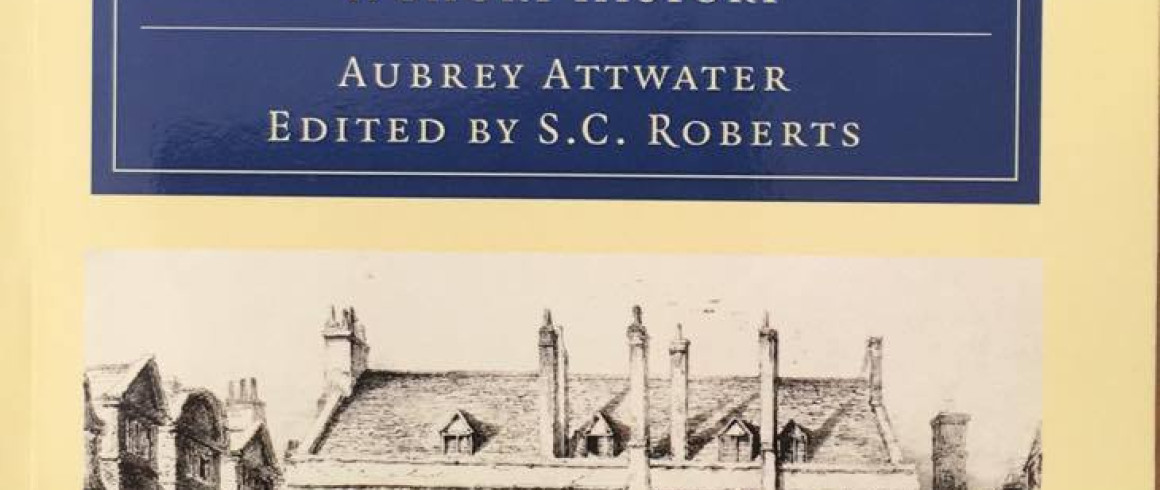Aubrey Attwater’s lexicon: A guide to college life for the modern Valencian
For those who are not aware, Aubrey Attwater (1911) was a Fellow of the college who took it upon himself to write the definitive history of Pembroke.

Unfortunately, this work was never completed because he died before he was able to finish it, in 1935. Luckily, the college had asked for the short notes, and in the summer before his death Attwater completed enough of a short history that his friend S.C. Roberts (1913), Master of Pembroke from 1948 – 1958, was able to edit and publish it. Pembroke College Cambridge: A Short History takes us through the early years of the college, up until the 18th century. In his account, Attwater often quotes letters and texts from the time he is writing about. Some of these excerpts, and Attwater’s own words, provide us with something of a guide to Pembroke language through the ages. What follows are some examples (updated for contemporary Valencians) that particularly stand out. Many are from the chapter on the 18th century, which seems to have been a dramatic time in Pembroke:
When you have holiday work: “needs in al hast be a studding in Christmas when other were a plaiing, and was then whottest at mi book when the rest were hardist at their cards” (p. 45)
When you’re deeply offended: “Tuke it in marvellous great duggin” (p.45)
When you don’t want to leave after graduation: “he lingereth about ye colledg like a masterless howne” (p.46)
Remembering why you’re here in exam term: “we shall all go quietly and rowndly to our books, and so in time grow to that ripeness of lerning, wisdom and eloquens which thos our predecessors grew into” (p. 47)
Describing freshers’ flu to your supervisor/parents: “tormenting by devils and extraordinarie and incredible unrest”
When you need a particularly good insult: “a passing singular odd man” (p.44); “a bragging brainless head or two” (p.54); “a stiffe saucey clowne” (p.61)
Living out of college: “tenants ‘have binne forced to ride both hither and thither’” (p. 59)
“Disturbances”: for describing serious problems in an understated British way. See: Black Death; English Civil War
When Savino catches you wearing the wrong thing to formal: “”not only go verye disorderlie in Cambridge waring for the most part their hates and continually verie unseemlie ruffes at their hands and greate Galligaskes and Barreld hoose stuffed with horse Tayles with skabilonion and knit netherstockes too fine for schollers; but also most disguysedlie theie goo abroade waringe such Apparell even at this time in London (although like hypocrites they come at this time outwardlie covered with the scholler’s weed before your honors) that a greate sorte of godly men and such as bear good will to the university are greatlie offended to se such unseemlie going of schollers and especially of Proctors and ministers” (p. 44)
When you don’t understand other subjects: “a conjurer suspected of practising the black arts, though he may have been a mere mathematician” (p. 31)
When the telephone campaign rings up but you don’t have a job yet: “To each of the Fellowes he left one shilling”
When someone has lived a good life: “he died in college of eating too many custards” (p. 36-7)
An ode, composed by Christopher Smart for the 400th anniversary of the college (p.94):
Religious joys and sober pleasures,
Virtuous ease and learned leisure,
Society and books, that give
Th’important lesson how to live:
These are gifts, are gifts divine,
For, fair Pembroke, these were thine
